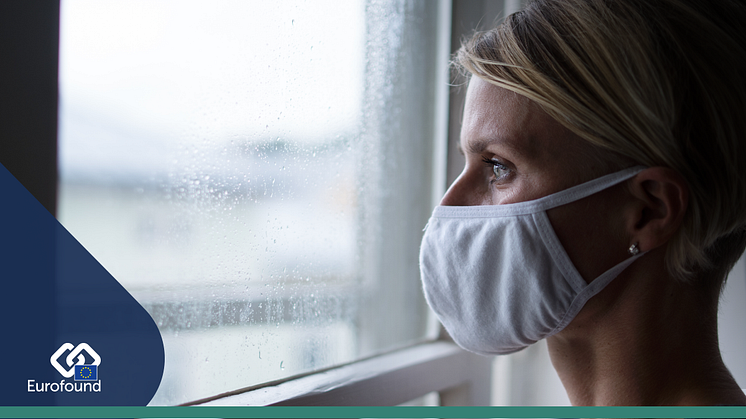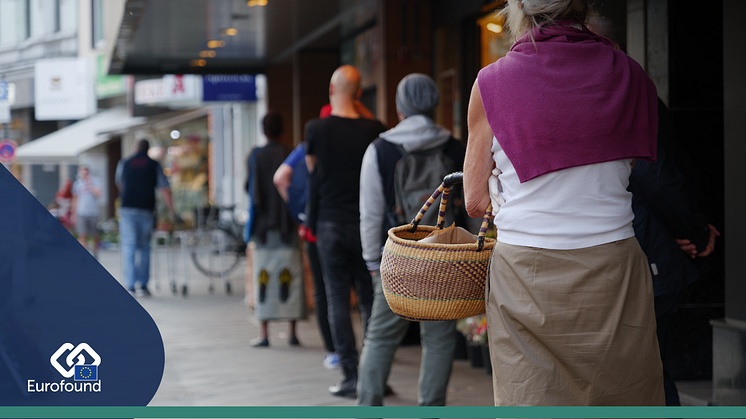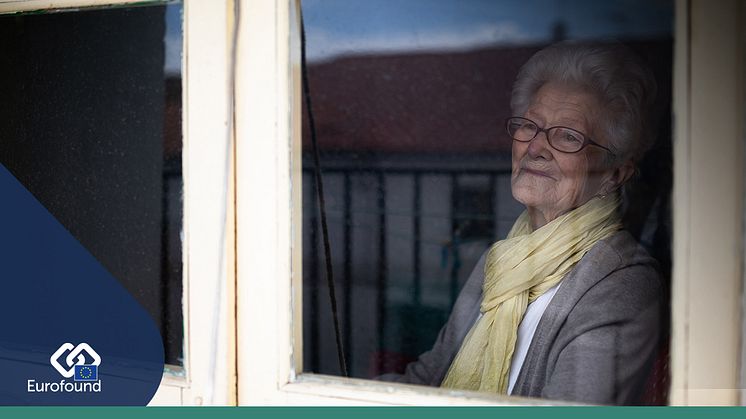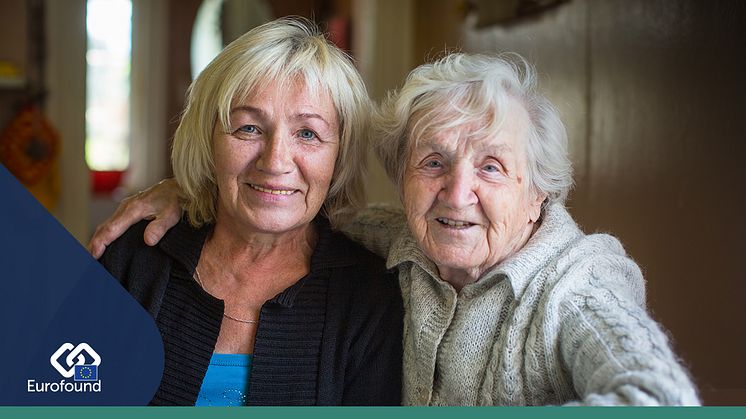Trust in national governments plummets, threatening social cohesion across EU
Trust in institutions has plummeted across the EU with trust in national governments in particular sending alarm signals across numerous Member States.

Trust in institutions has plummeted across the EU with trust in national governments in particular sending alarm signals across numerous Member States.

Over a quarter (27%) of adults in the EU are vaccine hesitant, with 29% of men and 25% of women indicating that they were either ‘very unlikely’ or ‘rather unlikely’ to take the COVID-19 vaccine in Eurofound’s large-scale Living, working and COVID-19 online survey.

Across Europe, citizens are feeling the divisive social and economic fallout of the pandemic and a dwindling number now view crisis support measures as fair and efficient.

Released just before the publication of the results of the latest Living, working and COVID-19 e-survey, Eurofound's 2020 yearbook takes stock of how much has happened in just 12 months, projects what might lie ahead, and sets the scene for EU policymakers as they seek to shape Europe’s policy responses.

On 9 May, the Conference on the Future of Europe will get underway. Floated well before the COVID-19 outbreak, its timing in the wake of the seismic shifts precipitated by the pandemic, and its implementation alongside the European Pillar of Social Rights Action Plan, means that the outcomes could be far-reaching.

The pandemic has had differential impacts on women. Raised consciousness about them must be applied to advance gender equality in recovery measures.

Short-time work or similar measures were implemented in all EU Member States during 2020 and contributed greatly to limiting the rise in unemployment that resulted from the COVID-19 pandemic. However, further success was hampered by varying levels of income protection between countries, as well as limitations in coverage.

There were 5.7 million fewer people in employment in the EU by spring 2020 than at the end of 2019, and 6.3 million fewer compared with the trend growth that could have been expected before the COVID-19 pandemic.

Eurofound’s new policy brief on ‘Education, healthcare and housing - How access changed for children and families in 2020’ focuses on the aspects of accessibility for children and families for which Eurofound has data and highlights differences in accessibility before and during the COVID-19 pandemic.

This year’s theme to mark International Women’s Day on 8 March is Choose to Challenge (or #ChooseToChallenge, if you prefer). The idea is to highlight that ‘from challenge comes change’ and that ‘we can all choose to challenge and call out gender bias and inequality’.

While 2020 may come to be seen as the year platform work gathered pace and started to go mainstream – thanks in large part to COVID-19 containment measures sparking an increase in food and grocery delivery – 2021 could be the year that regulation of platform work is set in motion.

Eurofound’s Living, working and COVID-19 online survey aims to capture the far-reaching implications of the pandemic for the way people live and work across Europe. Two rounds of the online survey have been carried out to date. The third round is launched today, 15 February, and will be open until 29 March 2021.

The employment toll of COVID-19 has been stark in Europe, and it could have been even greater had it not been for the adoption of unprecedented assistance measures in all Member States, supported by the European Union. But have these policies benefited different groups in the labour market equally, or have they cemented existing inequalities in access to support?

Nominal statutory minimum wages in most Member States and the UK continued to rise in 2021. With inflation being low, this has resulted in real increases for those minimum wage workers who have managed to retain their jobs and the same working hours.

In the most successful businesses, managers were found to facilitate employees to work independently rather than to focus on controlling whether they carried out their tasks. Closely monitoring employee behaviour might indeed ensure that workers do their job but is unlikely to motivate them to go beyond their job description.

Standard employment is not simply being replaced by non-standard work; employment is becoming more diverse, and policy must accordingly become more tailored.

Stefan Gran has been elected Chair of Eurofound’s Management Board during the third meeting of the Board on 6 November 2020. He takes over from outgoing chair Aviana Bulgarelli, Ministry of Labour and Social Policies (Ministero del Lavoro, della Salute), Italy.

Eurofound’s new flagship report ‘Challenges and prospects in the EU: Industrial relations Developments 2015-2019’ provides an overview of developments in industrial relations and social dialogue in recent years, prior to the COVID-19 outbreak.

Eurofound has focused on Europe's immediate social, economic and labour market priorities and its developing role over the coming four years with the publication of its Programming document 2021-2024.

An ageing Europe and rising public expenditure on long-term care have signalled for some time that the fundamentals of care provision need to be addressed. However, the shocking death toll in care homes during the COVID-19 pandemic and the fact that many long-term care services were ill-equipped to protect their vulnerable users have lately focused the public mind on the issue.
